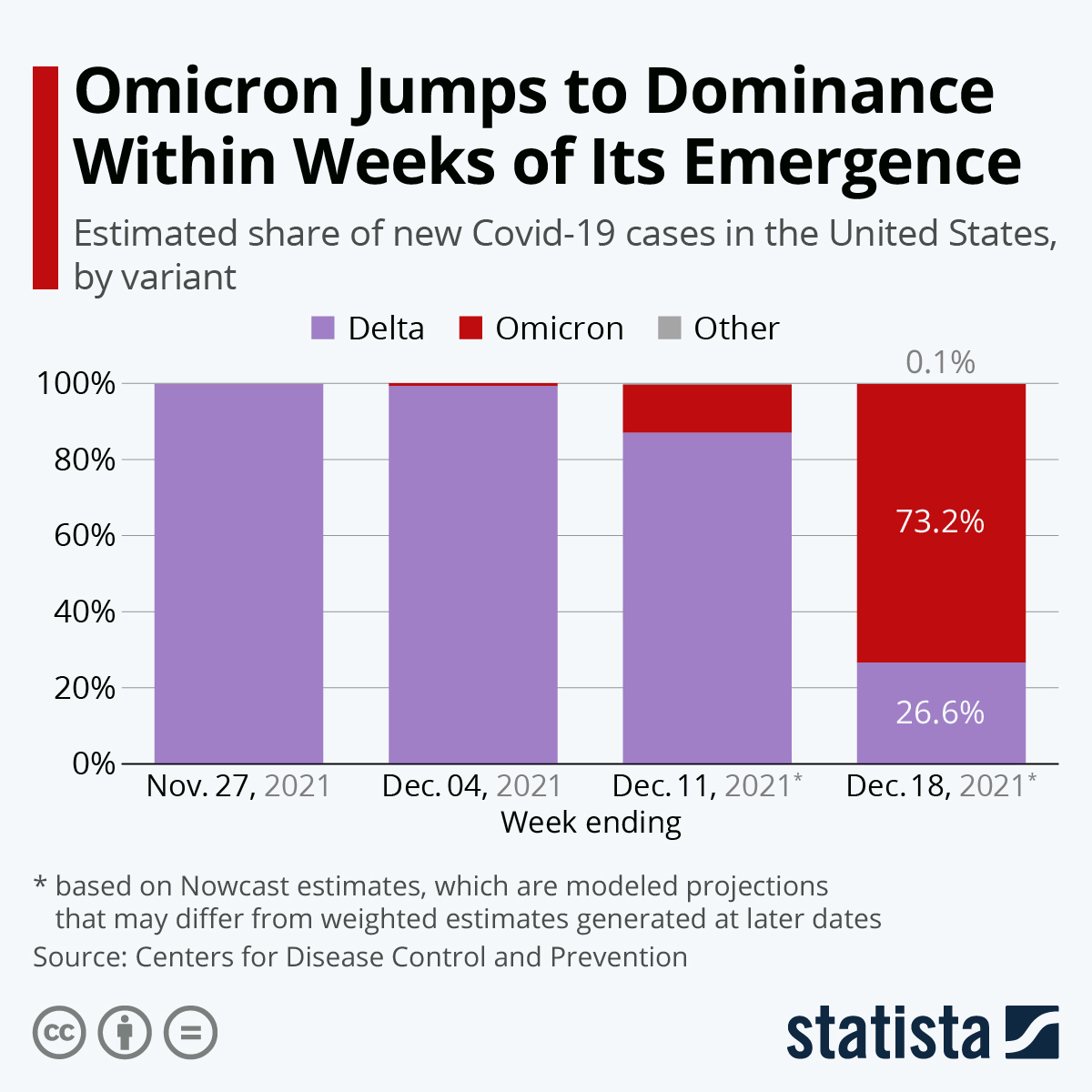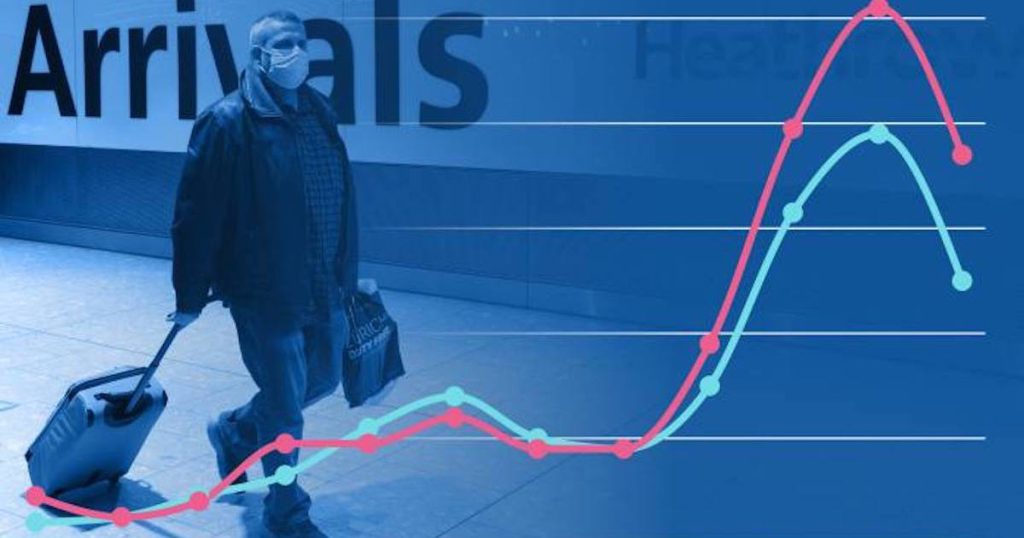Given the latest Covid-19 infection records set around the world, optimism regarding the pandemic seems to be misplaced.
Even places like Singapore, which inoculated nearly all eligible residents and tried living with the virus, were forced to rollback even limited Vaccinated Travel Lane agreements with other, thus far well-performing countries.
And yet, the spread of Omicron seems to confirm our best hopes — not worst fears.
Yes, the new strain is considerably more infectious, but it is also considerably less lethal and, most importantly, the current wave peaks rather quickly, before subsiding equally fast.

Looking at Omicron’s origin, we can see how the latest wave of infections is unlike any before. Typically deaths followed growing infections quite quickly and proportionately, but with the latest variant, this link has been broken.
In fact, Omicron wave has largely passed, while average daily number of fatalities is only slowly nudging upwards, nowhere near what we would expect previously.
South Africa is our best litmus test, since it had to deal with Omicron first and, thus, we can now compare whether the rest of the world is seeing similar trends.
So, does it? Let’s take a look.

Recent surge in cases is nothing like the country has seen before, with three to four times more infected than even during the autumn/winter peak of 2020, before vaccines became available.
But again, as in South Africa, deaths do not seem to follow in the same proportions — and it’s not only down to vaccines (which, after all, are less effective against Omicron) but the virus itself, as the Delta outbreak ravaged the States just a few months ago.
It also seems that the US may already be past the peak and is going to see a rapid downward trend, particularly as the weather is about to start improving across the country (last year’s peak came at around the same time, leading to several months of relative calm).
Britain is ditching masks – and isolation
Meanwhile, the embattled British prime minister Boris Johnson stunned many yesterday announcing an end to mask mandates, mandatory vaccine certification, isolation for the infected from March 24 and work from home starting January 26.
Our scientists believe it is likely that the Omicron wave has now peaked nationally… because of the extraordinary booster campaign, together with the way the public have responded to the Plan B measures, we can return to Plan A.
Once regulations lapse (on January 26), the government will no longer mandate the wearing of face masks anywhere.
Boris Johnson, Prime Minister of the UK

As before, there’s data to back this decision, given how rapidly the Omicron wave has been receding in Britain, without triggering a surge in deaths, while hospitalisations remain stable or decline across the country.

A similar scenario is playing out everywhere else, albeit at different times, given the uneven spread of the virus, which is yet to arrive in some countries in the coming weeks.
Nevertheless, the experience of past waves suggests that the greatest threat might soon be behind us, as weather improves and typical winter “flu season” ends, while warmer conditions encourage people to spend more time outdoors or at least open windows at their homes and offices.
Virus grants immunity to millions
Paradoxically, the sheer transmissibility of Omicron also plays a positive part, as the virus itself acts like a vaccine, leading to greater presence of antibodies among all infected.
Given the milder course of the illness, many people may not even get themselves tested, while WHO’s predictions suggest that more than half of Europeans will contract Omicron within the next two months.
So, even before there are new variant-specific vaccines and/or treatments, most may have already defeated the disease quite naturally.
This should lead to lower incidence of the virus in the coming months, particularly as we’re going to receive more support from boosters targeting Omicron itself.
Get your bags ready (but don’t pack them just yet)
Last year’s spring and summer seasons were already pretty comfortable in many parts of the world, with travel resuming in America and Europe (before most people even got their jabs).
2022 should see border restrictions lifted elsewhere too, with more people having been inoculated, while the deadly Delta has been wiped out by milder Omicron.

As a result, it seems highly likely that this year is going to bring a proper revival of international travel, as soon as each country has dealt with the inevitable surge of the new variant (the sooner, the better).
The situation should remain stable at least until the autumn, when we may witness another bounce-back of the disease, perhaps in another incarnation, that’s going to be even less dangerous (hopefully).
While we may not see complete freedom of travel to and from all destinations just yet, the most coveted ones should be accessible again, reviving a sense of normalcy lacking so badly in the past two years.
Shop and support the best homegrown brands on VP Label now:
Featured Image: AFP via GettyImages












